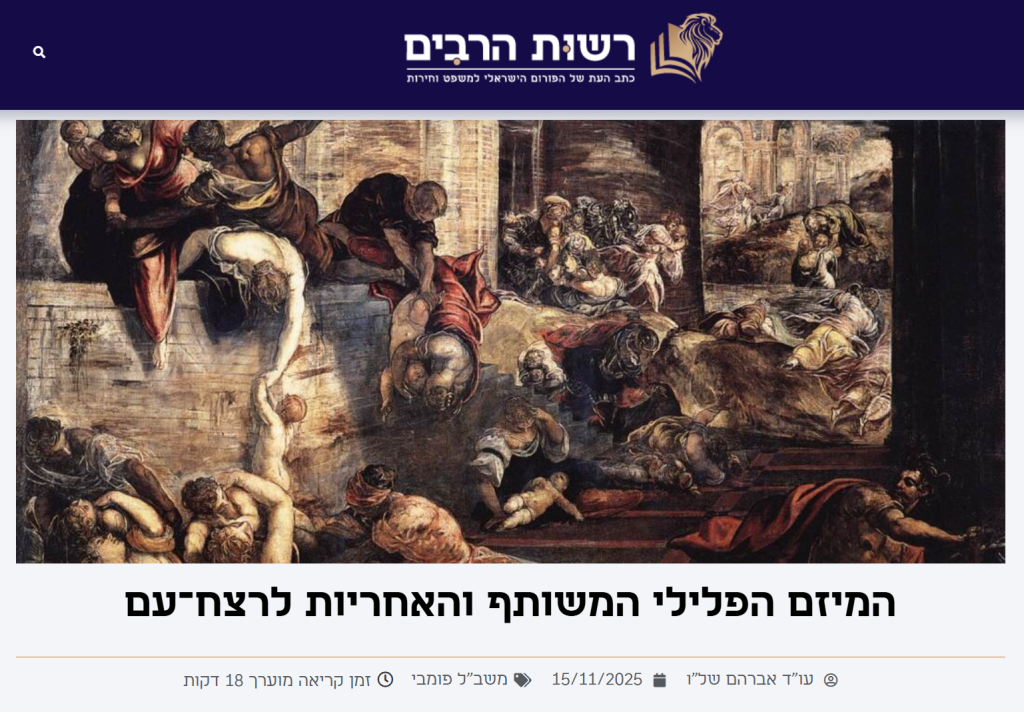A comprehensive and innovative research by Ariel Karlinsky, Tom Sadeh, Eran Yogev and Michael Sarel
The main part of the research was conducted while the four authors were working at the Kohelet Economic Forum.
The research paper was peer-reviewed and accepted for publication in The Economic Quarterly and will be published in an upcoming issue of the journal.
This paper estimates the distribution of the general government’s tax collection and expenditure among households in Israel, by combining data from household expenditure surveys conducted by the Israel Central Bureau of Statistics with administrative data from many other sources. Based on the literature regarding the distribution of the tax burden, the value of taxes borne and the value of all services and transfers received from the general government are attributed to each household.
Summary
Israeli households pay taxes, and Israeli households receive tax-funded transfers and services from the State of Israel (such as allowances, public education, subsidized healthcare and more). This study takes a deep dive into the data to analyze households’ net transfers – benefits minus taxes – by income decile, population sector (non-Haredi Jews, Haredi Jews, and Arabs), family type, household structure and more. The research investigates, inter alia, which households receive more than they pay for and which pay more than the value of what they receive.
The research presented in this paper is far more comprehensive than previous studies in the scope of the taxes, services, and transfers studied – covering almost all taxes and expenditures of the general government (meaning all public-sector institutions, including the government, local authorities, Kupot Cholim (health maintenance organizations) and Bituach Leumi (National Insurance)). Taxes include all direct taxes (such as personal income taxes and company taxes) and indirect taxes (such as VAT). State expenditure includes both direct payments such as allowances from Bituach Leumi, and services such as public education and transport.
Estimates include in-depth and cross-sectional analyses that were not previously possible – from the disaggregation of each specific tax payment and expenditure to the separate details of all net transfers (total transfers and services minus taxes).
The research also includes many other results, as well as sensitivity analyses under different assumptions, and changes in the tax and expenditure variables.
The primary analysis by population sectors shows that the average non-Haredi Jewish household pays approximately 6,000 shekels more in taxes than the value it receives from transfers and services, with 70% of such households paying more than what they receive (net negative transfers); while the average Haredi and Arab households receive, respectively, approximately 4,000 and 1,000 shekels more than what they pay, with 80% and 60% of these households receiving net positive transfers.
Analysis by income deciles shows that households in the lower income deciles receive significant net transfers from the general government sector, so that the value of the services and transfers they receive exceeds the taxes they pay. In general, the lower income deciles receive, on average, transfers and services of greater value than those received by the higher income deciles (with the exception of old age pensions that are more prevalent among the higher income deciles).
The number of children per household plays a role in the results, since a larger number of children translates broadly into higher net transfers for both single and two-parent households, with single parents receiving more for the same number of children.
Note that this research is descriptive only, presenting the situation as it is, without any prescriptive comment on how taxes and benefits should be distributed.




